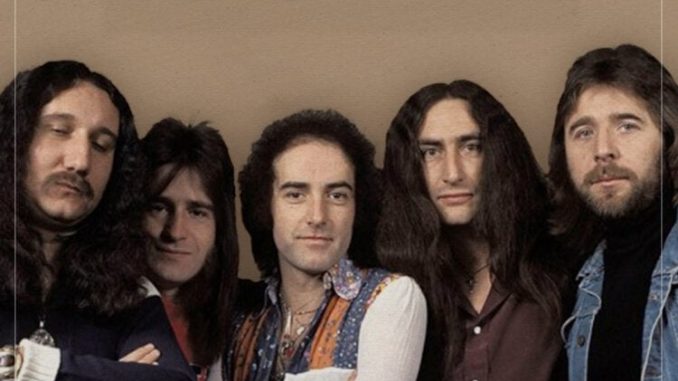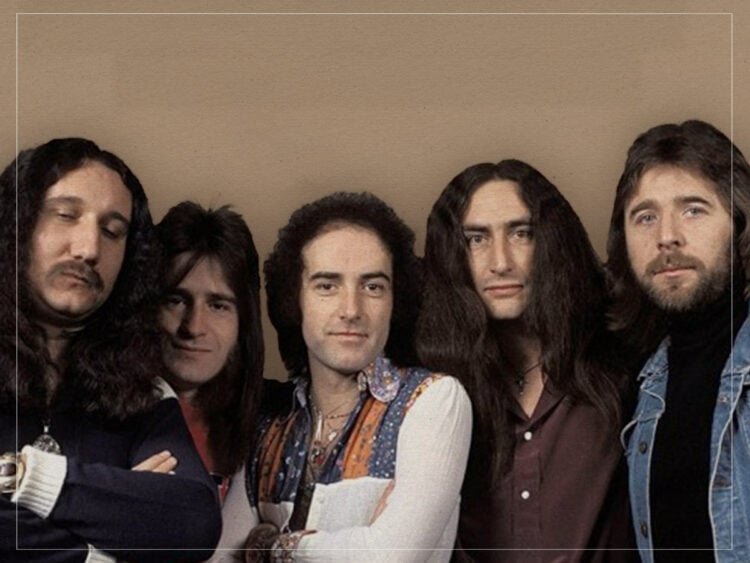
In the annals of classic rock, few stories sting as deeply as the downfall of David Byron, the golden-throated frontman of Uriah Heep. Once hailed as one of the finest voices in British hard rock, charismatic, flamboyant, and unmistakably gifted, Byron’s exit from the band he helped define remains one of the most painful chapters in Uriah Heep’s long and turbulent history.

By the mid-1970s, Uriah Heep were flying high. Albums like Demons and Wizards (1972) and The Magician’s Birthday (1972) had propelled them into international stardom, cementing their reputation alongside contemporaries like Deep Purple and Led Zeppelin. At the center of it all was Byron’s soaring range and theatrical presence, the perfect complement to Ken Hensley’s songwriting and Mick Box’s guitar heroics.
But as the decade wore on, success came with a darker side. The relentless touring, pressure to produce hit albums, and the chaotic excesses of the rock ’n’ roll lifestyle began to take their toll — particularly on Byron. His drinking, once seen as part of his flamboyant charm, became increasingly destructive. Studio sessions grew tense, live performances unpredictable, and the chemistry that once bound the band together started to crumble.
Ken Hensley would later recall in interviews that by 1976, Byron’s alcohol abuse had reached a point where it was “damaging the band’s reputation and the music itself.” The breaking point came during the sessions for High and Mighty. Despite flashes of brilliance, the tension was unbearable. “We were at a crossroads,” Hensley said. “It wasn’t that we stopped loving David, it was that we couldn’t go on like that anymore.”
When the fateful meeting came, Byron reportedly “kicked and screamed,” refusing to accept the band’s decision. He believed he was irreplaceable — and in many ways, he was. Mick Box described the moment as “horrendous” and “heartbreaking,” saying, “David was family. But we were watching him destroy himself. We had no choice.”
Uriah Heep moved forward with new singer John Lawton, releasing Firefly in 1977 and continuing their career with renewed focus. But for Byron, the road was much harder. He embarked on a solo career, releasing a handful of records and working with bands like Rough Diamond and The Byron Band, yet the same demons that haunted him within Heep followed him beyond.
Tragically, David Byron died in 1985 at just 38 years old, from complications related to alcohol abuse. His passing marked the end of one of rock’s great voices, and a reminder of how the industry’s pressures and personal struggles could destroy even the brightest stars.
Looking back, Mick Box often speaks of Byron with affection and sorrow. “He was unique,” Box said. “When David walked on stage, the room lit up. Losing him, as a singer and as a friend, was devastating. But I hope people remember the magic he gave us while he was here.”
Today, nearly five decades later, Byron’s legacy remains immortal through Uriah Heep’s early records, a voice that soared above the storm, even as the man behind it fought his own.
Leave a Reply